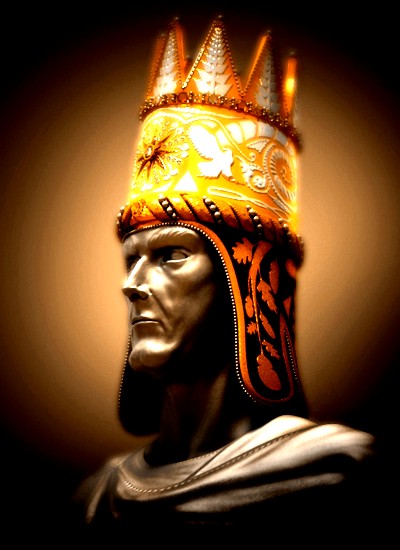Aeetes
Aeetes (or Aeëtes; Ancient Greek: Αἰήτης - originating from the word "eagle") was the son of the Greek sun god Helios and the Oceanid Perseis. This parentage is generally said to have made him sibling to Pasiphae, Circe and Perses.
Helios would give Aeetes a kingdom to rule over; a kingdom originally known as Ephyra, but would become better known as Corinth. The neighbouring kingdom of Asopia (Sicyon) was given by Helios to Aeetes’ half-brother Aloeus.
Aeetes though would not stay long in Corinth, and instead left the kingdom to a son of Hermes named Bunus; although when Bunus died the kingdom was absorbed into the neighbouring kingdom of Sicyon, by Aloeus’ son Epopeus.
Departing from Corinth Aeetes would travel to the southern Caucasus, and there, on the eastern edge of the Black Sea would establish the new kingdom of Colchis.
In Colchis Aeetes would become father to three children, the daughters of Aeetes being Medea and Chalciope, and the son of Aeetes being Apsyrtus. The mother of these children is not entirely clear, for ancient sources name the Oceanid Idyia, as well as the mountain nymph Asterodia, and the Nereid Neaera.
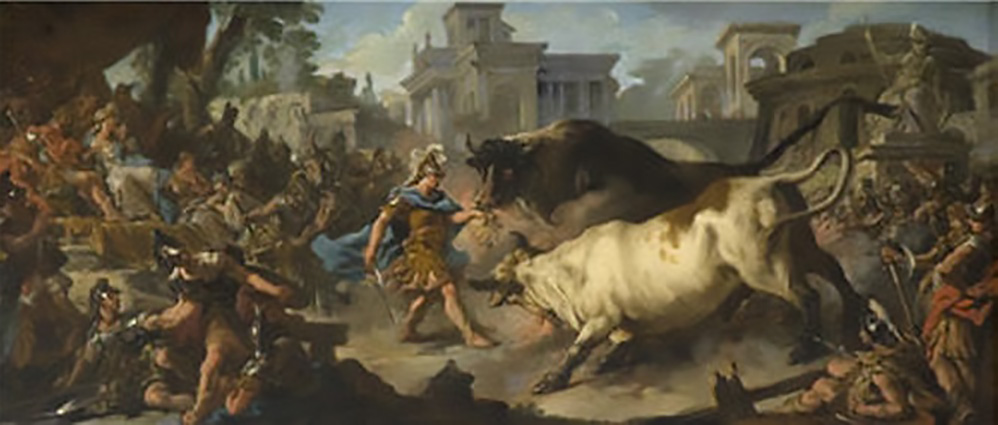
Flight of two siblings and the Golden Fleece
Phrixus, son of Athamas and Nephele, along with his twin, Helle, were hated by their stepmother, Ino. Ino hatched a devious plot to get rid of the twins, roasting all the town's crop seeds so they would not grow. The local farmers, frightened of famine, asked a nearby oracle for assistance.
Ino bribed the men sent to the oracle to lie and tell the others that the oracle required the sacrifice of Phrixus but before they were able to kill him, Phrixus and Helle were rescued by a golden ram sent by Nephele, their natural mother.
Helle fell off the ram into the Hellespont (which was named after her) and died, but Phrixus survived all the way to Colchis, where Aeëtes took him in and treated him kindly, giving Phrixus his daughter Chalciope in marriage. In gratitude, Phrixus gave the king the golden fleece of the ram, which Aeëtes hung on a tree in his kingdom. Aeëtes dedicated the golden fleece to Ares.
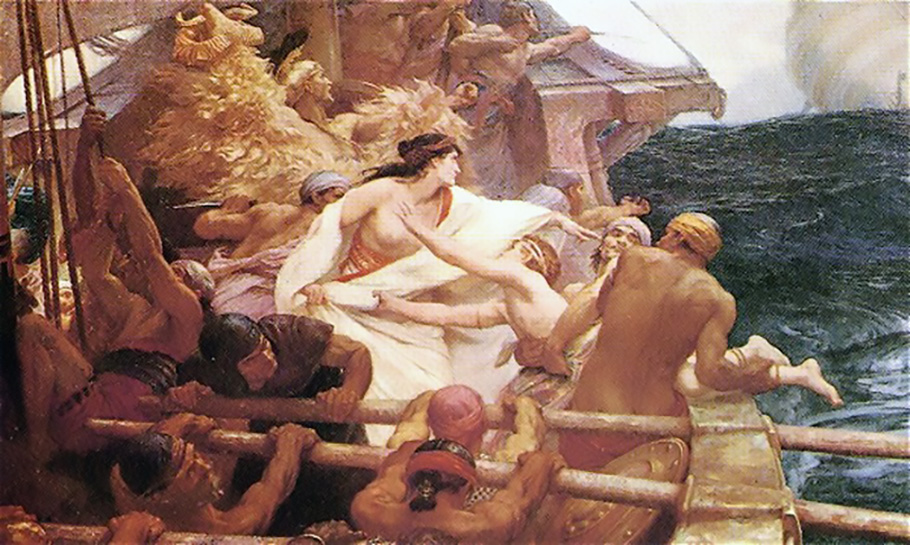
Jason and the Argonauts
Some time later, Jason arrived to claim the fleece as his own. Aeëtes promised to give it to him only if he could perform certain tasks. First, Jason had to plow a field with fire-breathing oxen that he had to yoke himself. Then, Jason sowed the teeth of a dragon into a field. The teeth sprouted into an army of warriors.
Jason was quick-thinking, however, and before they attacked him, he threw a rock into the crowd. Unable to determine whence the rock had come, the soldiers attacked and killed each other. Finally, Aeëtes made Jason fight and kill the sleepless dragon that guarded the fleece. Jason then took the fleece and sailed away with Aeëtes's daughter Medea, who had fallen in love with him and had done much to help him win the fleece.
Aeëtes pursued them in his own ship as they fled, but Medea distracted her father by killing and dismembering her brother, Absyrtus, and throwing pieces of his cadaver overboard. Aeëtes paused to gather the pieces of his son, and thus Jason and Medea escaped.
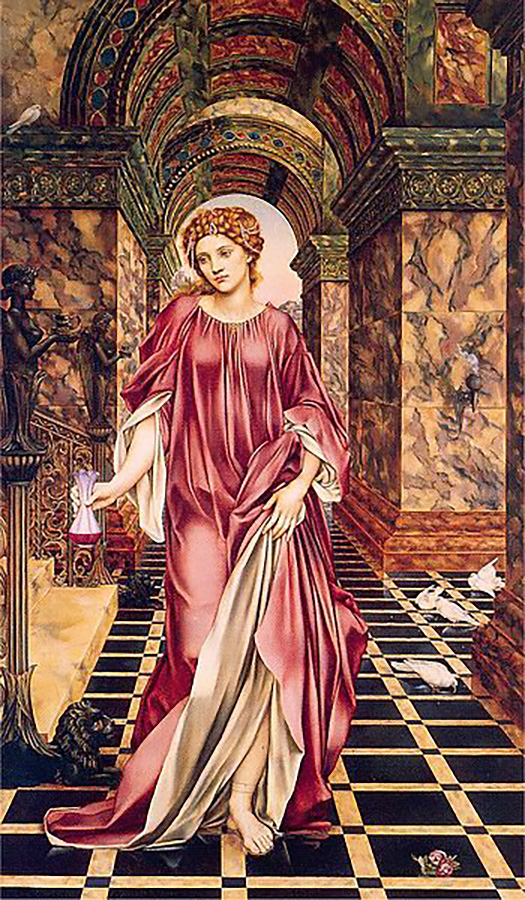
The Final Chapter in Aeetes Life
The loss of the Golden Fleece would ultimately lead to the loss of the throne for Aeetes, just as the prophecy had predicted. Perses, Aeetes’ own brother, would depose him.
Several years would pass, but then Medea would return to Colchis; the sorceress having been abandoned by Jason, and subsequently exiled from both Corinth and Athens.
Finding Perses on the Colchian throne, Medea sets about righting the wrongs from years earlier, and Perses would die at the hands of Medea. Medea then placed her father back on the throne.
Aeetes would eventually die a natural death, and Medea’s son, Medus, would succeed his grandfather.
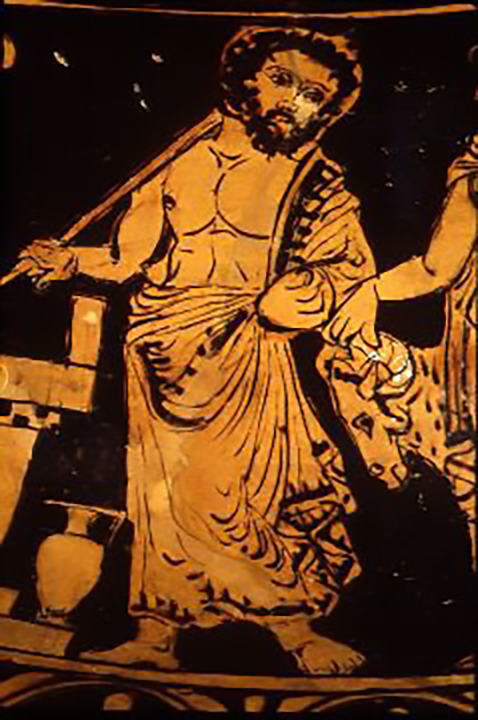
Sources
Argonautica Orphica, 760–1044.
Apollonius Rhodius. Argonautica, 3. 240–4. 131.
Scholia on Argonautica, 3. 242
Bibliotheca 1. 9. 23.
Pausanias. Description of Greece, 2. 3. 10.
Strabo. Geographica, 1,45.
Smith, William; Dictionary of Greek and Roman Biography and Mythology, London (1873).


